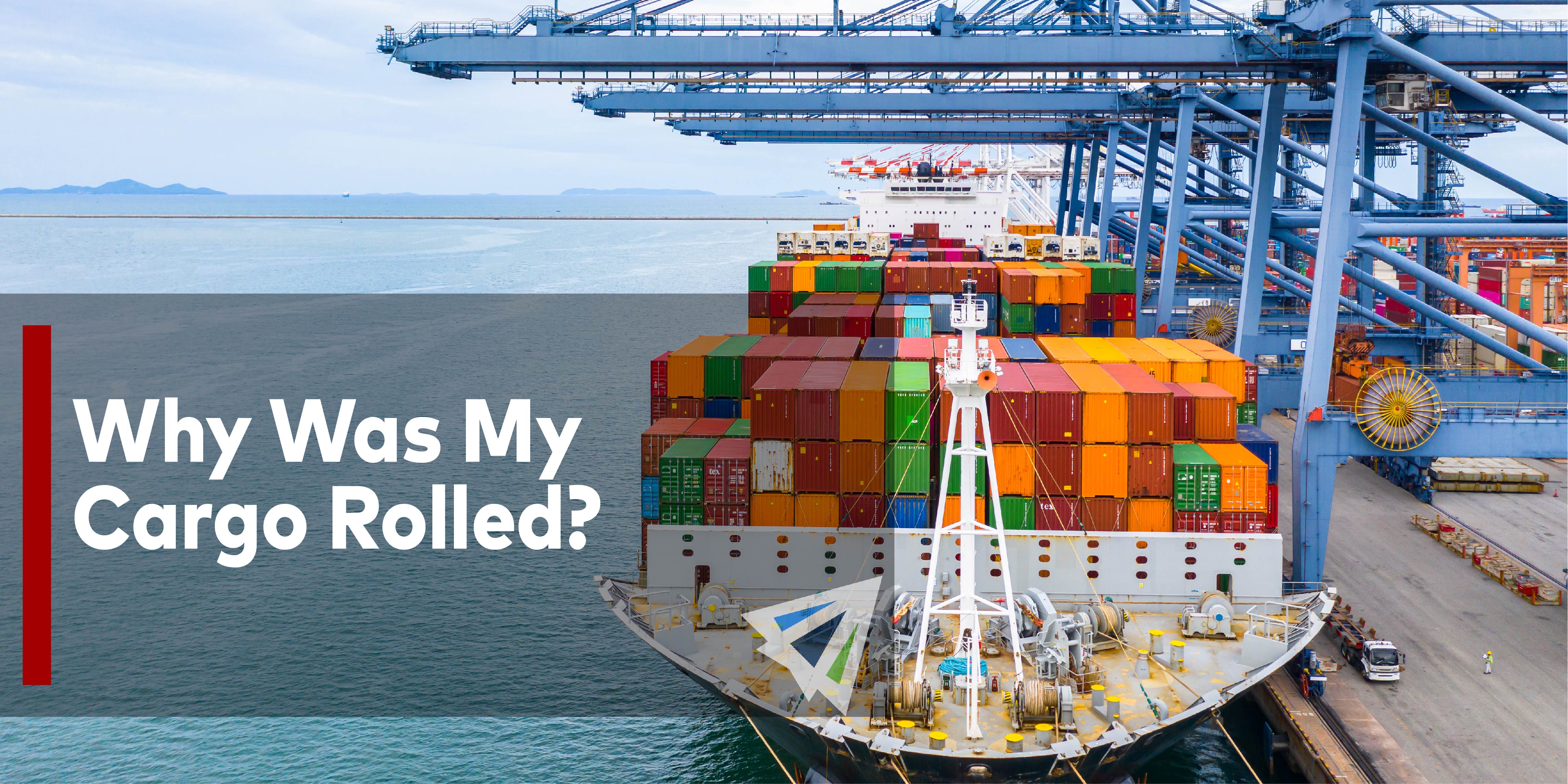Aren’t you glad you picked the most stress-free, easy going, uncomplicated career choice?
We didn’t think that was the case…
If you’re reading this, chances are you’re pretty frustrated. Having your cargo rolled can be frustrating and confusing, and often leaves shippers with no idea regarding what to do let alone why it even happened. Hopefully we can provide some insight for you!
Reasons Your Cargo May Have Been Rolled
Cargo doesn’t just get rolled for one singular reason. Shipping is complicated and often various different circumstances come into play when a carrier makes the decision to roll your cargo.
When your cargo has been rolled, it means that it was not loaded onto the vessel for departure that it was supposed to. If you are trying to better understand why your cargo may have been rolled, these are a few common reasons:
- Overbooking
- Vessel omissions (when a vessel skips the port)
- Vessel weight issues
- Mechanical issues
- Missed cut-off days
- Documentation problems
- Pending title validation (for auto shipments)
If you pay attention to that list, you’ll notice that there are some factors you can’t avoid – if a ship has a mechanical issue or has been overbooked, it’s tough luck for everyone involved. But plenty of these issues can be avoided with careful planning and good logistics practices. Here’s what we’re talking about:
How to Avoid Rolled Cargo
This all comes down to planning and taking action early on. If you are working with a good freight forwarder, they should keep you informed on all these pieces, but it’s always important to track everything yourself so you know what’s going on.
We can’t tell you the countless stories we’ve heard of shippers who failed to accurately mark their cargo details – weight, contents, etc. The most important thing you can do to avoid rolled cargo is ensure that everything related to you responsibilities is without error. That means reporting the exact correct weight of your cargo, selecting all appropriate HTS codes, and properly labeling any and all hazardous materials.
It also means ensuring all documents are correct. If you are required to file AMS or EEI for any imports/exports, do so within the appropriate amount of time for departure or arrival. Failing to do so may leave you not only with a rolled cargo situation, but also steep fines of up to $10,000 per instance of violation, which isn’t fun for anyone.
What to Do If Your Cargo is Rolled
Well this kind of ties in with everything mentioned above. The first thing you should do if you cargo is rolled assess the reason why. Obviously, things such as mechanical failures or vessels being overbooked are completely out of your control. But if it has anything to do with your cargo preparation, documentation, or timing, make sure you solve the issue immediately! Your cargo will be “rolled” to the next sailing date, but only if everything is in order by required timelines.
Having cargo rolled is incredibly frustrating, If you’re at a loss for what to do and how to handle it, or simply have questions about the situations you’re in, please reach out to one of our team members! We’d be happy to answer your questions and help in any way we can!
